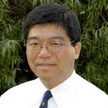Question: we reasently learnt that pneumonoultramicroscopicsilicovolcanoconiosis is the longest word in the english language and also a type of lung disease. can you tell us anymore about it????
Keywords: cancer, english, language, learn, long, lung, pneumonoultramicroscopicsilicovolcanoconiosis, word








Hi siennarox123, pneumonoultramicroscopicsilicovolcanoconiosis is a puzzler’s delight, the answer to many a quiz question and bound to come up in trivia one day.
You are right, it is the longest word in the English language, however, it is basically made up for the purpose of creating a really long word (45 letters).
Some people created it by joining together many smaller words, each one with it’s own meaning. Combined, the word means: ‘a lung disease caused by the inhalation of very fine silica dust, causing inflammation in the lungs’.
pneumo: relates to breathing and the lungs
ultramicroscopic: very, very small
silico: silica
volcano: opening or rupture in Earth’s crust. Maybe they put this is to make it more exciting?
coniosis: a disease caused by the inhalation of dust
It’s a respiratory disease caused by exposure to silica, so it is most common in people working in mines, glassblowers (glass is made from sand, or silica) and sand-blasters. It causes damage to the lungs, resulting in cough and shortness of breath. The condition is normally just called silicosis as I can’t imagine any Doctor wanting to write out the long version every time they come across a case of it!
2
Pneumonoultramicroscopicsilicovolcanoconiosis? It’s better known as silicosis which is a very serious disease. It happens when the lungs are inflamed after breathing in very very fine silica dust. The lung tissue can get irritated and sores known as lesions can form. These can heal but can cause scarring and the scars and lesions make breathing really difficult. The very scary thing about this disease is that there is no cure for this and people can die from it.
Luckily most people won’t be at risk from developing it unless they work in an environment with a lot of fine silica dust in the air. So people who cut stone or tiles, glassblowers and sculptors using stone, and mineworkers are most at risk. This is why when people cut stone or tiles now use a power tool that also sprays water to reduce the amount of dust in the air. On a gold minesite that I worked at once, there was a lot of silica dust produced from crushing the gold ore. In that situation I had to wear a mask to prevent breathing in silica dust.
0
I don’t know much about disease, but on the question of longest words, using a scientific word is sort of cheating. Scientists systematically name things, so the more complicated the thing, the longer the name. There are chemical substances with longer names, but scientific words is sort of cheating.
0
Yeah that’s a teensy word for a chemist. I was writing this afternoon about this molecule: “N-formyl-N-(2-oxo-2-(1-oxo-3,4-dihydroisoquinoline-2(1yl)ethyl)cyclohexanecarboxamide” and that’s a pretty small molecule. “pneumonoultramicroscopicsilicovolcanoconiosis” – pah! Still, sounds like a nasty disease. Stay away from silica dust. We use it in the lab all the time and need to handle it in cupboards designed so that the air flow goes away from you, meaning you don’t breathe any in.
0